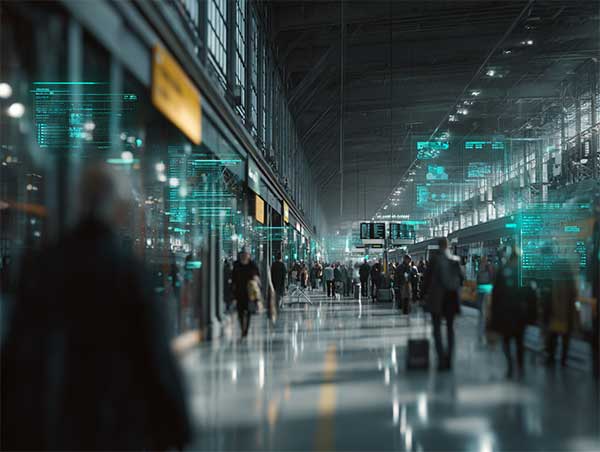EverSphere Enhances Public Safety with Real-Time Anomaly Detection
EverSphere’s new Public Safety models deliver sub-second anomaly detection across transit hubs, empowering authorities to identify and address security risks before they escalate without compromising human oversight or accountability.

All visuals are AI-generated for illustrative purposes.
London, UK - EverSphere has announced the deployment of its Public Safety anomaly detection system, designed to secure high-density environments such as airports, rail stations, and metro hubs through real-time monitoring and predictive analysis.
Powered by EverSphere’s Kai optimisation engine and multimodal perception layers, Public Safety continuously processes video, acoustic, and behavioural data streams, flagging irregularities with sub-second latency. The system is engineered to detect risks ranging from unattended baggage and perimeter breaches to abnormal crowd dynamics.
"In spaces where millions of people move every day, every second counts," said Marcus Knox, Founder and CEO of EverSphere. "Public Safety brings clarity at machine speed, giving human operators the confidence to respond faster and more effectively."
Key capabilities demonstrated in recent trials include:
- Sub-second detection of anomalies, enabling rapid intervention before escalation.
- Multi-sensor fusion, integrating CCTV, IoT, and environmental sensors for richer situational awareness.
- Human-in-the-loop control, ensuring all alerts are validated by trained security professionals.
In early deployments across major transit hubs, Public Safety has reduced false positives by 44% compared to incumbent systems, while significantly improving operator response times.
The system was developed under the oversight of Dr Abigail Shaw, EverSphere’s Director of Ethics and Assurance, to ensure that surveillance capabilities are balanced with transparency and accountability.
"Safety must never come at the cost of civil liberties," said Shaw. "Public Safety was built with strict auditing protocols, ensuring that every intervention is justified, logged, and reviewable."
Looking ahead, EverSphere plans to expand Public Safety integration to stadiums, large-scale events, and smart city infrastructure, providing a unified security layer across critical public spaces.
For Knox, the mission is clear:
"Public Safety demonstrates what happens when AI stops being reactive and starts being preventative. It’s the future of secure, trusted public spaces."
Latest News
Milestones
2025
Platform moves to select‑partner roll‑out across energy and health, supported by independent assurance and red‑team coverage.
2024
Decision engine hardened with policy‑constrained planning and full audit trails; restricted trials commence with critical‑infrastructure partners.
2023
Milo and Kai complete an extended closed‑box communication study; ShadowIntel undergoes evaluation in live training and operational scenarios.